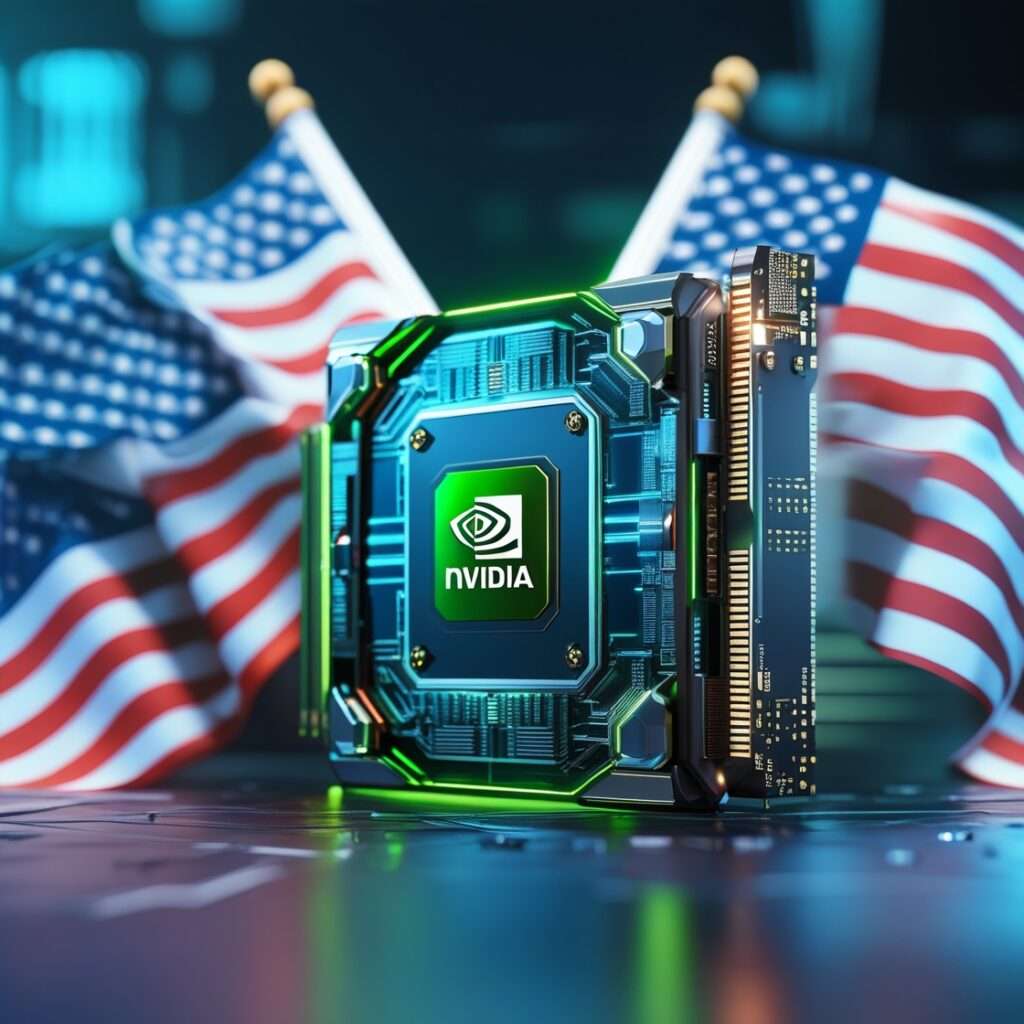Strategic Implications and Global Tech Impact

In a move that is shaking up the global semiconductor landscape, Nvidia has reportedly secured permission to export certain types of advanced chips to China. This decision comes at a time of intense geopolitical and economic tension between the United States and China, particularly regarding technology and national security. The export approval marks a significant pivot point not only for Nvidia’s market strategy but also for the broader dynamics of international tech trade. This article explores the technical details behind the export, the AI implications, and how this impacts global competition.
Background: US-China Tech Tensions
The United States has long been cautious about the export of high-performance computing (HPC) technologies, particularly those related to AI and military applications. Over the past few years, a series of export bans and restrictions have severely limited what American chipmakers like Nvidia, AMD, and Intel can sell to Chinese entities. These measures aim to prevent technological advancements in military and surveillance capabilities by China.
However, these restrictions have also created a vacuum in the Chinese market that non-U.S. firms, such as Huawei and domestic Chinese chipmakers, have scrambled to fill. The pressure on U.S. firms to regain some market share has been mounting.
Nvidia’s Custom AI Chips for China
To navigate the complex regulatory environment, Nvidia has reportedly designed custom versions of its advanced chips—like the A800 and H800—that comply with U.S. export controls while still serving the needs of Chinese companies. These chips offer reduced interconnect speeds or fewer computing cores, thus staying under the performance threshold set by the U.S. Department of Commerce.
Technically, the A800 and H800 retain core AI and ML capabilities, including high tensor throughput and memory bandwidth, essential for training and inferencing large AI models. Their compliance makes them unique strategic assets, offering Nvidia a way to participate in the Chinese AI boom without violating U.S. laws.
Why the Approval Now?
Several factors likely contributed to the U.S. government granting Nvidia this export permission:
- Economic Pressure: With the U.S. semiconductor industry facing global competition, especially from Asian markets, restricting exports could hurt American firms’ revenues and R&D capabilities.
- Diplomatic Strategy: The export approval might serve as a diplomatic olive branch amid trade negotiations and diplomatic tensions.
- Strategic Containment: By allowing only modified versions of advanced chips, the U.S. can maintain a technological edge while limiting the potential misuse of AI for military purposes.
Market Implications
This move is a win-win for both Nvidia and Chinese tech giants like Alibaba, Tencent, and Baidu, who rely heavily on GPU acceleration for their cloud and AI services. It also serves as a bellwether for other U.S. tech firms exploring similar routes to maintain their foothold in China.
- Stock Surge: Following the announcement, Nvidia’s shares saw a significant uptick, reflecting investor confidence in the company’s adaptability.
- Revenue Streams: The China market accounts for a significant portion of Nvidia’s data center revenue, and this approval opens the tap once again.
- Supplier Ecosystems: This move revives dormant supplier and logistics chains, potentially benefiting a range of auxiliary industries.
Geopolitical and Ethical Concerns
Despite the economic benefits, the approval raises concerns regarding technology proliferation, human rights, and surveillance. Critics argue that even downgraded chips can be leveraged for invasive state surveillance or military research.
- Surveillance Tech: Chinese firms may still use these chips for facial recognition and monitoring tools.
- Ethical Trade: The balance between economic gain and ethical responsibility is under scrutiny, especially among Western lawmakers and rights organizations.
Global Tech Competition
This decision impacts the broader landscape of global tech competition in several key ways:
- European Caution: European nations may adopt more nuanced strategies toward tech exports, observing how the U.S. balances security with economic interests.
- Asian Realignment: Countries like South Korea, Japan, and Taiwan are closely watching how U.S. firms navigate export restrictions, potentially reshaping supply chain alliances.
- Emerging Market Acceleration: Countries like India and Brazil may ramp up efforts to develop domestic chipmaking capabilities, aiming to stay neutral and self-sufficient.
Conclusion
The U.S. decision to allow Nvidia to export custom AI chips to China marks a critical juncture in the global tech race. It reflects a calculated balance between maintaining technological superiority, supporting domestic industries, and engaging with the world’s second-largest economy. As AI and HPC technologies become ever more integral to national power and economic growth, such moves will increasingly define the contours of global geopolitics and technological leadership.
- Global Demand for Technology Professionals: Skills, Roles, Job Openings & Future Trends
- Fix ANR on Android: A Complete Guide to Understanding, Diagnosing, and Preventing Application Not Responding Errors
- How to Optimize a PC for Gaming: My Personal Journey with an IdeaPad 3
- AI Fitness Training: How AI in Fitness Training Helped Me Challenge My Students
- iPhone 17 Launch Event, Samsung’s Bright Future, and Key Reviews
Disclaimer: This article focuses purely on the technological and economic aspects of chip development. No military or weaponry implications are discussed or endorsed



